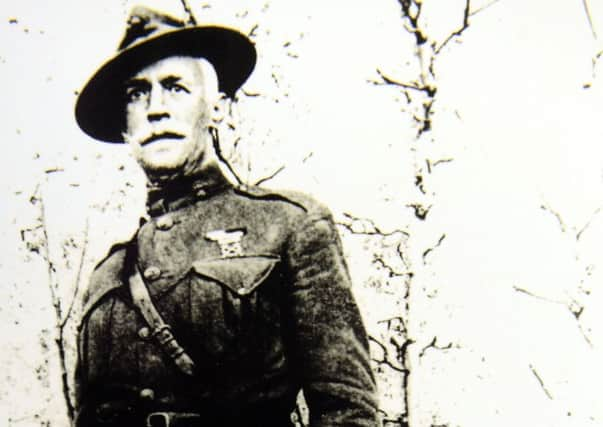The all-American war hero who came from Hull


To Americans, Arlington National Cemetery in Virginia is hallowed ground.
It holds the remains of hundreds of thousands of war veterans, including soldiers who fought in the American Civil War.
Advertisement
Hide AdAdvertisement
Hide AdIt is also the final resting place of Henry Lewis Hulbert – a US Marine who fought and died in the First World War. What makes Hulbert different is that he was born in Hull.
And this summer a plaque was unveiled on the old Endeavour Building on Beverley Road in the city in his memory – a century after his death.
Historian Dr Robb Robinson, based at the Maritime Historical Studies Centre at The University of Hull, felt he deserved to be honoured by his home city. “I nominated Hulbert to the plaque committee because of his outstanding and very unusual story and because of the remarkable war service, albeit not for Britain but for our allies, the United States, his eventual home.”
Hulbert was born in Spring Street in 1867. At the age of 17 he joined the British Colonial Service and was sent to the Straits Settlements – what is now Malaysia.
Advertisement
Hide AdAdvertisement
Hide AdWhile living in the Far East he met and married the daughter of a colonial official. However, his world was thrown into turmoil when he had an affair with his wife’s sister. She was sent back to Britain in disgrace, but tragedy struck when the ship carrying her sank off Aden and she drowned.
Hulbert was devastated by the news and he, too, left the Far East. He travelled to America working first as an engineer before joining the US Marines in 1901.
By the time the United States entered the war in 1917 Gunner Hulbert was 50 years old, but rather than taking a desk job he insisted on being in the thick of the action.
He became a platoon leader and quickly excelled. Wounded in his regiment’s first major engagement at Belleau Wood on June 6, 1918, Hulbert was twice cited for acts of bravery. On one occasion, armed only with a rifle, he single-handedly attacked German machine-gun positions.
Advertisement
Hide AdAdvertisement
Hide AdThough he was old enough to be the father of the men he led, he always led by example and a third act of heroism earned him the Distinguished Service Cross, making him one of the first Marines to receive this honour.
By the autumn of 1918 he had been promoted to captain but on October 4 his luck ran out when he was killed by a German machine gunner during an attack at Blanc Mont Ridge, in France.
He was posthumously awarded the Navy Cross, while the French government bestowed the Croix de Guerre Order of the Army upon this “most gallant soldier”.
Not only that but in 1919 the Americans built a warship which was named the USS Hulbert in honour of his exploits.
Advertisement
Hide AdAdvertisement
Hide AdThe story doesn’t end there, though. A couple of years later his body was disinterred and returned to America where he was buried with honours in Arlington State Cemetery, and to this day Americans still award the Hulbert Trophy for outstanding leadership.
“He deserves to be remembered as another example of the global reach of people from Hull because he was a Yorkshireman who was one of the most decorated of the US Marines in the First World War,” says Dr Robinson.
“His story is important because of his remarkable life and times and because even today the American Marines still mark his achievements through the annual Hulbert Trophy and the US Navy named a ship after him.
“He is also, of course, a Hull-born man interred in the Arlington National Cemetery.”
As Rupert Brooke famously wrote in his poem The Soldier, there is indeed “some corner of a foreign field” that is “forever England.”